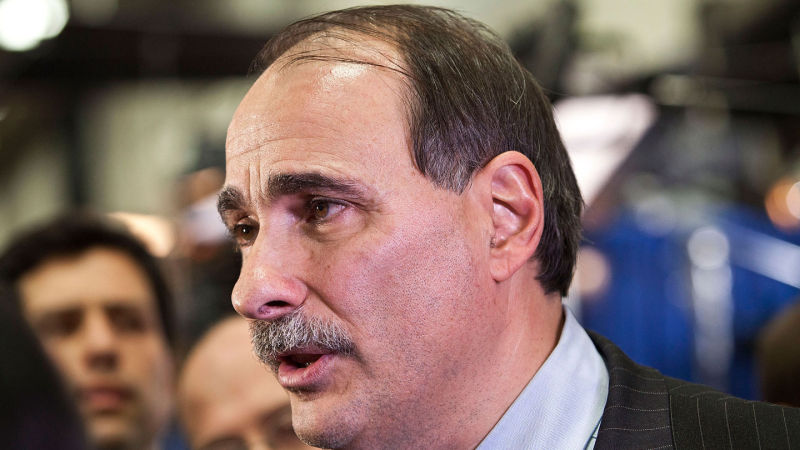The president treated [the debate] like a joint press conference and it was a disaster. And we knew it would be a disaster. We had a run through the night before the debate and it was a really bad run through and my colleagues generously designated me to go in and tell the President that and when the President said to me 'Well, I think that went pretty well', I had a choice and I decided I'd better tell him the truth. I told him 'I think we gotta do better tomorrow,' and he stormed out and he used a word directed at me that I'd never heard before or since. It was the sharpest exchange we ever had and I knew it was because he was frustrated because he knew that he wasn't ready. When we got to the arena the next day, he said to David Plouffe, a senior adviser at the time, 'Let's just get this over with and get out of here,' which is not what you want to hear from the president as he's going into his first debate. … it was only after we had an intervention 30 or 24 hours before the second debate that he really got into a groove and got his mojo back."
On Incremental Change
"History is replete with examples of presidents who maneuvered the country forward in ways that involved circuitous routes. People were frustrated that Lincoln didn't sign the Emancipation Proclamation for years. Roosevelt passed a social security bill that basically excluded African Americans because of the way it defined the kind of work that would be covered, but he knew that in the future that would be redressed. He ran in 1940 as sort of an isolationist even as he was plotting how to get America into the war. And so, part of leadership is trying to get the country around to the place where you think it ought to be, and it isn't always a straight line issue."
On Missing Obama
"when I left the White House in 2011, and again after the 2012 campaign, after being in constant touch with him, our interactions became less frequent, more sporadic. And I missed that — I didn't so much miss the action, I missed the central actor, because we weren't just client and adviser, we were also friends and had been going back to the early 90's and I enjoyed our chats. I still do."
On Honor in Politics
“There are some exemplary people in public life and I consider Barack Obama one of them. But, as I said there are people who are motivated by politics as a calling and not a business, or not as an exercise in ego-aggrandizement, who make a big difference, and they have throughout our history. We’ve had low and honorable characters in the history of our politics from the beginning. My goal, I didn’t always achieve it, was to find those people who had those qualities of leadership that I believed in.”
On Why Politics Matter
“I believe that there is something noble about the fact that we, in our country, have the ability to, through the people we elect and the votes we cast, really set a course in history for good or bad. I think about the 2000 election and I talk about it all the time. 527 votes in the state of Florida elected George W. Bush. If 528 people thought that it was worthwhile to come and vote for Gore or that a vote for Nader was a wasted vote and voted for Gore, think how different history might have been. Very likely we wouldn’t have been in Iraq, we wouldn’t have squandered a 2 trillion dollar, 10-year projected surplus, we would be way down the road on climate change, and all because in this vast country, in one state another 528 people didn’t think it was worthwhile [to vote] because they were skeptical or cynical about politics. It matters, this stuff matters.”
